On her 16th day at Thai Hai eco-village, Juliana Alves Noronha had already grown accustomed to waking up early, breathing in the fresh air, helping locals plant vegetables, tend gardens, make traditional rice cakes, and pick medicinal herbs.
Juliana, a 27-year-old visitor from Brazil, had also become a familiar face to the local children at the village kindergarten. They eagerly ran up to her, speaking broken English, while she smiled warmly in return.
With her camera always on hand, Juliana sought to capture every simple yet joyful moment of life in the village.
She explained that she is on a global journey, exploring destinations with rich cultural traditions.
While researching online, Juliana came across the Thai Hai Ethnic Stilt House Eco-Village, recognized by the United Nations World Tourism Organization as one of the “Best Tourism Villages in the World 2022.”
Curious about this unique community of nearly 200 residents living communally - sharing meals and pooling their income into a village fund - she was particularly drawn to the village’s wooden and bamboo houses nestled beneath lush ancient trees.
“I signed up to volunteer in the village to fully immerse myself in this communal lifestyle and experience its unique cultural traditions,” she said.
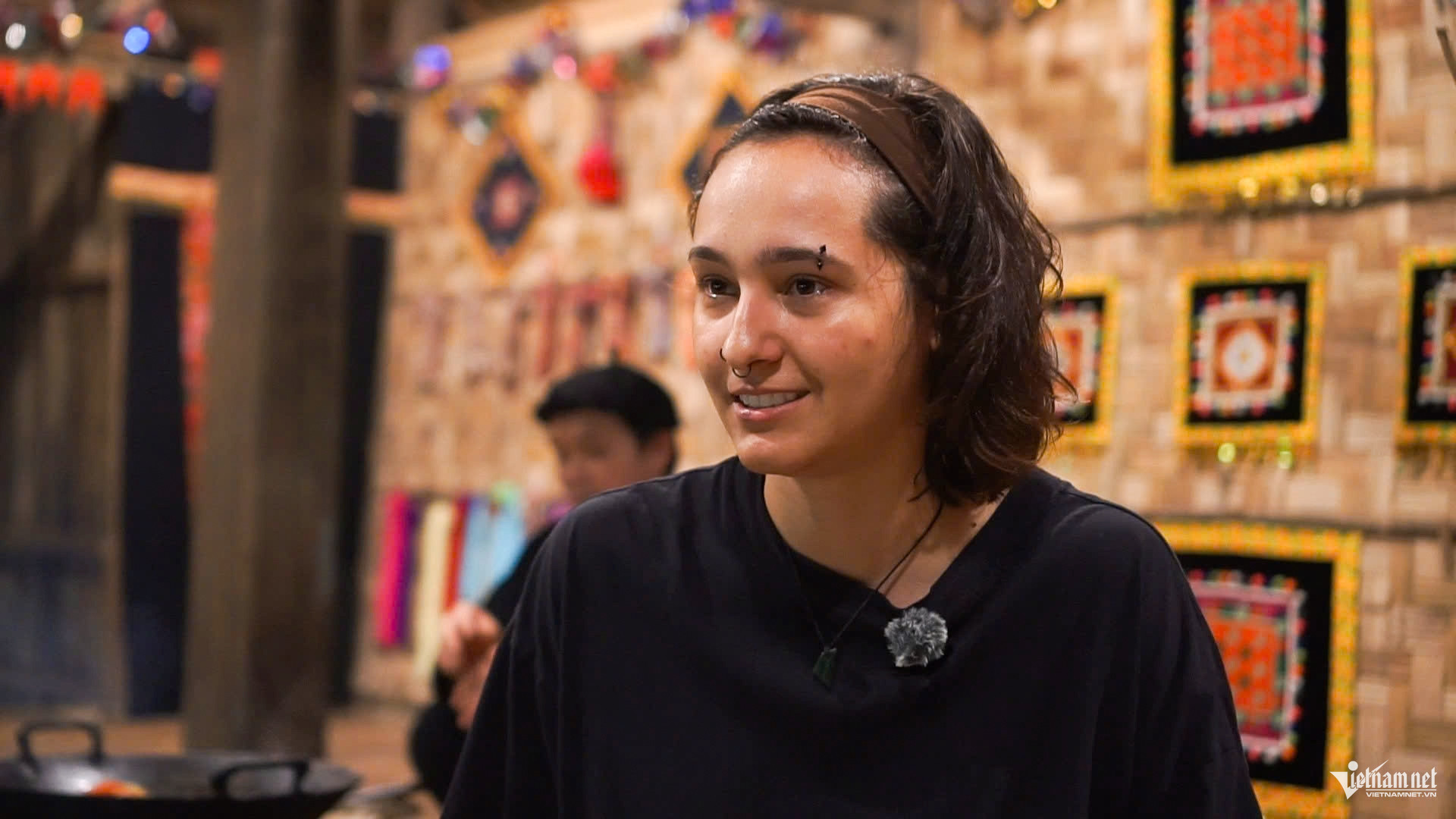
Juliana spent three weeks exploring Thai Hai village, but for her, that still wasn’t enough.
During her three-week stay, Juliana supported villagers by filming and photographing tourism activities and community events. She lived with locals, participating in their daily routines.
Nearly two decades ago, Nguyen Thi Thanh Hai, a woman passionate about Tay ethnic culture, initiated the preservation of this cultural space.
She sold all her assets to purchase 30 original stilt houses of the Tay and Nung ethnic minorities in Dinh Hoa district, relocating and rebuilding them in Thai Hai. She also persuaded Tay, Nung, and Kinh families to move in and form a shared community.
Each villager takes on a specific role - some manage livestock, others farm, some welcome tourists, and a few are trained in traditional medicine and healing.
At 5 a.m. daily, the village gong sounds to awaken residents for the day’s work. Juliana soon adapted to this rhythm.
Breakfast, lunch, and dinner are communal affairs, served at the large village dining hall rather than in individual homes.
“Every day, I would join everyone at the communal dining hall,” Juliana recalled. “Meals were served buffet-style, with hot, freshly cooked dishes that changed daily and were always delicious.”
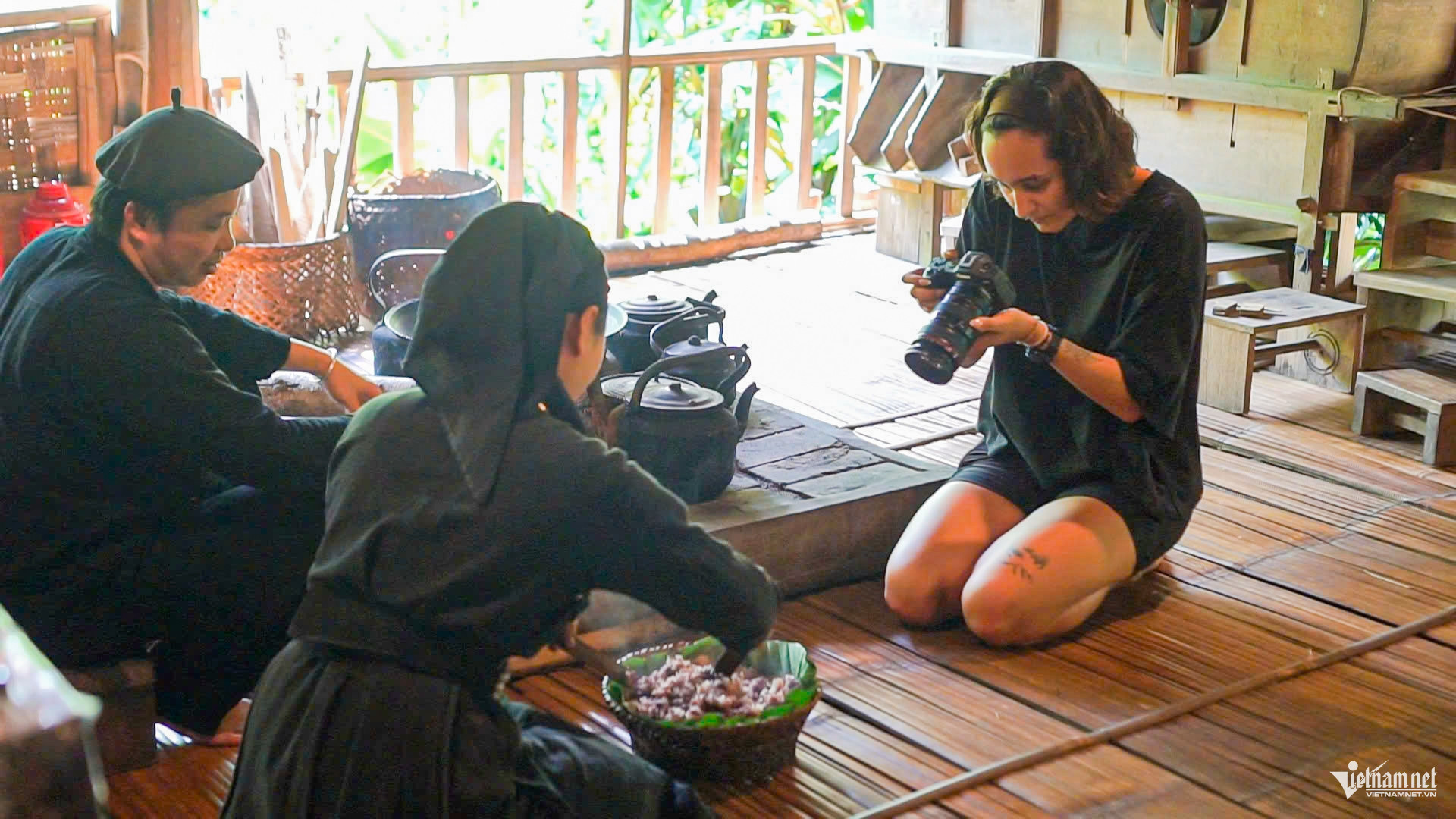
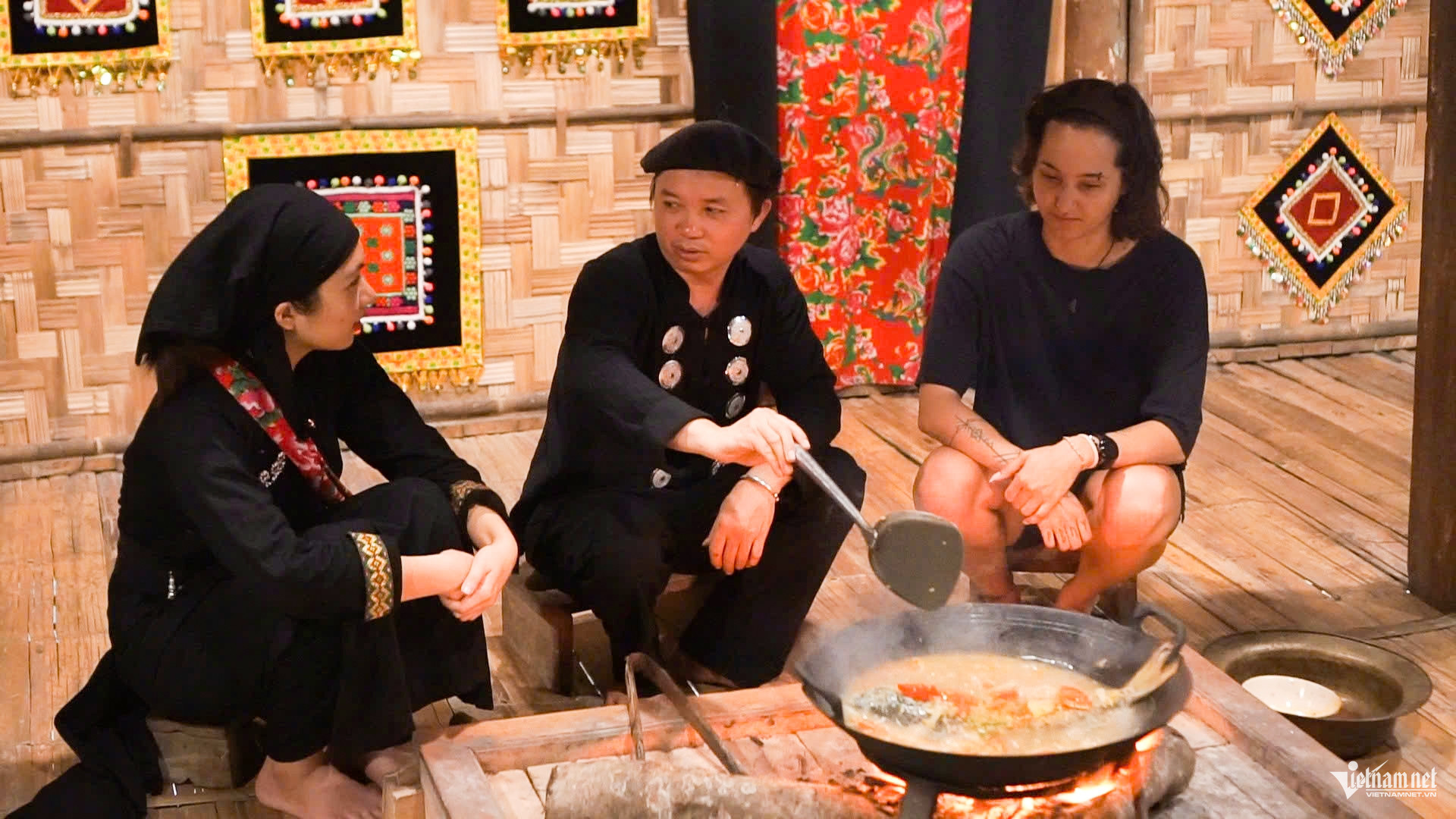
Juliana enjoys exploring the culinary traditions of the Thai Hai community.
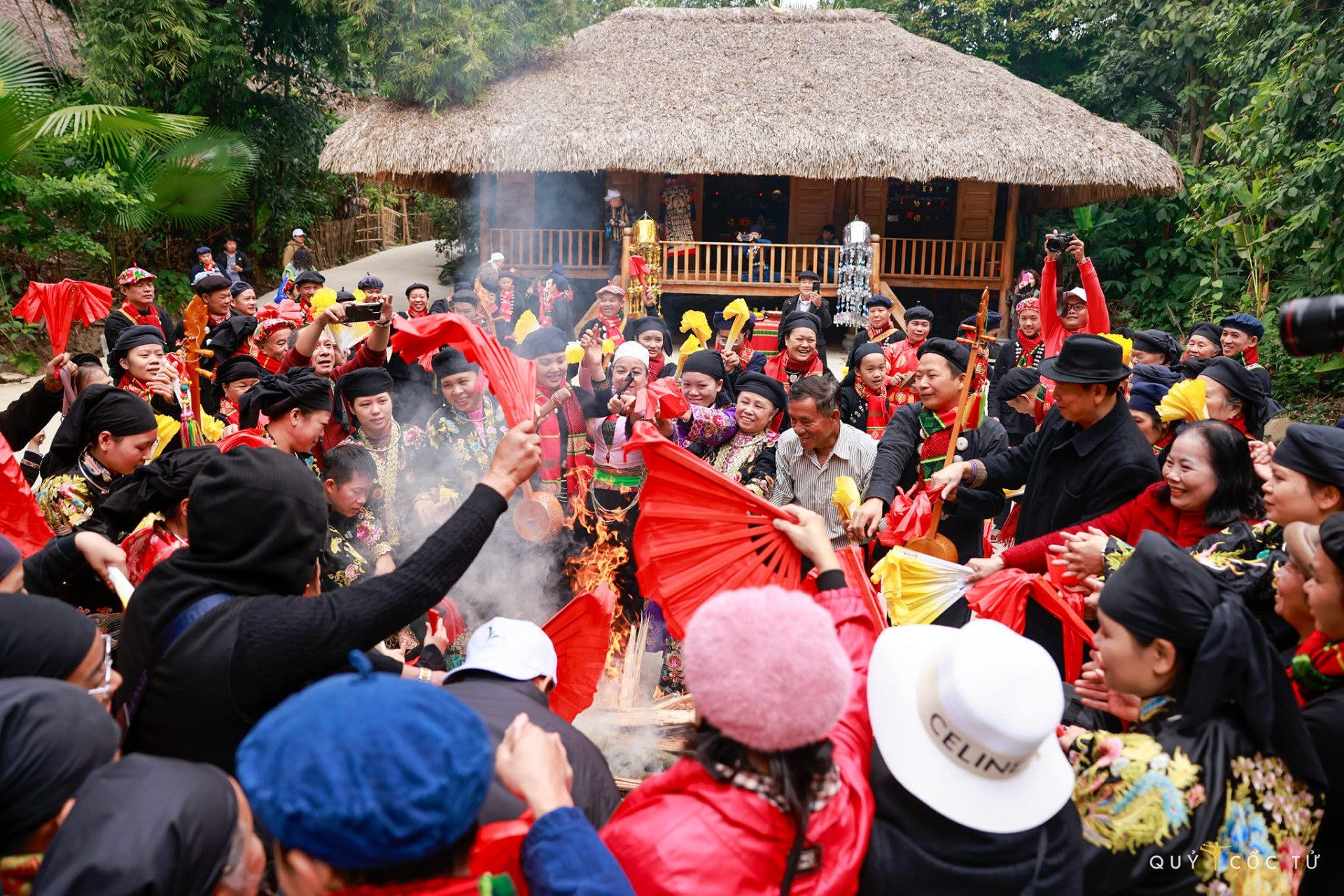
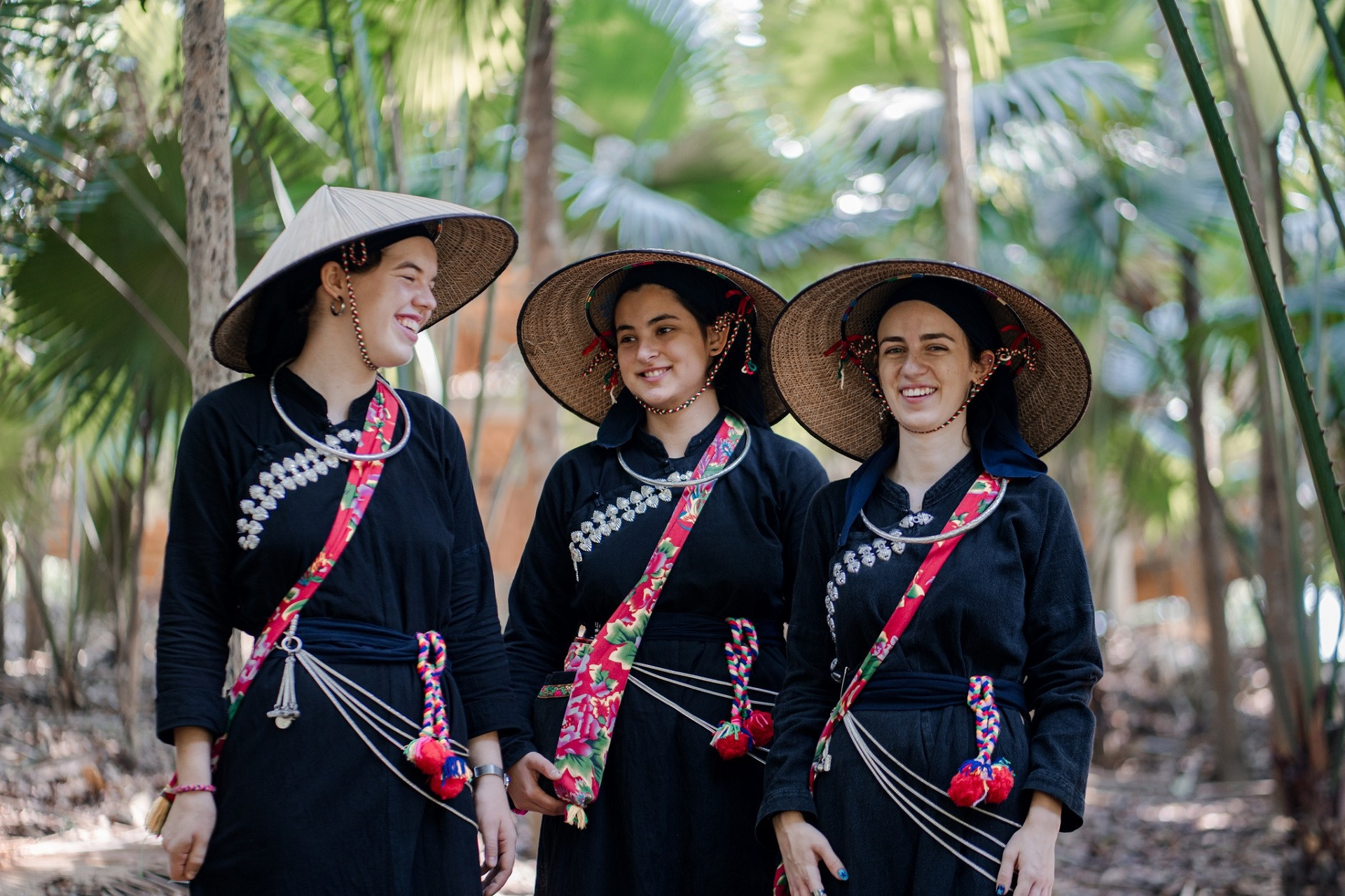
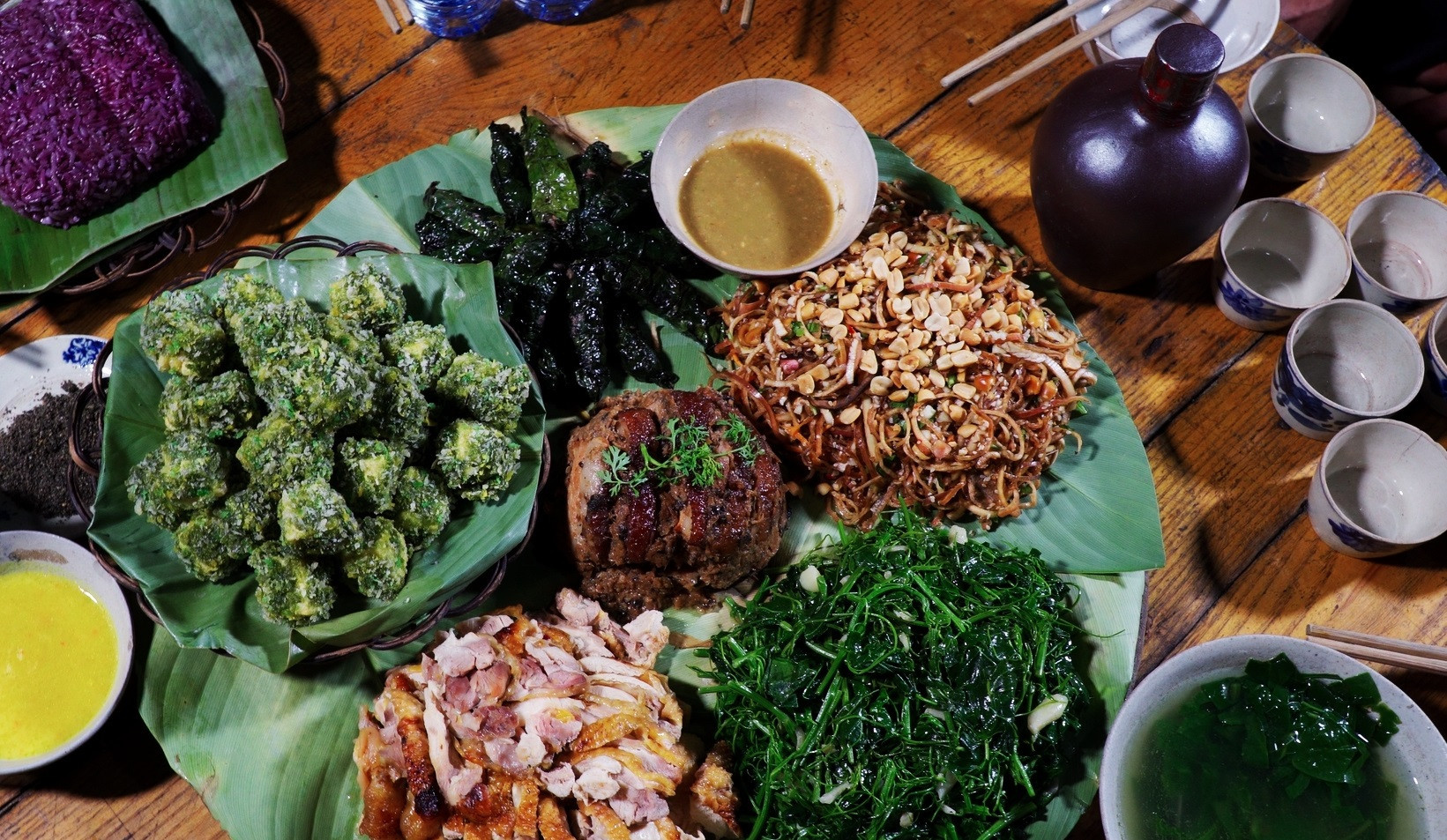
Thai Hai was named the world’s best tourism village in 2022 by the United Nations World Tourism Organization. Photo: Thai Hai Ethnic Village/ Quy Coc Tu
She also helped local families prepare traditional feasts featuring black glutinous rice, braised pork belly (khau nhuc), carp simmered with fermented rice, stir-fried pork with sour bamboo shoots, and tofu wrapped in green tea leaves.
In Thai Hai, families only cook at home when hosting relatives or friends, or during memorial days. Juliana was always eager to observe and photograph every step in the cooking process.
“They put great care into each dish and take pride in their culinary heritage. The kitchens may be simple, but they’re always tidy and filled with warmth,” she said.
Juliana wanted to use her photographs to introduce Thai Hai to a wider audience and inspire more people to explore this extraordinary village.
Sometimes, she forgot she was a visitor, as everyone welcomed her with open arms and heartfelt conversations. For her, Thai Hai felt like a living cultural museum.
“I’ll definitely return,” she said.
Le Thi Nga, Deputy Head of Thai Hai village, shared that many visitors initially plan short stays but end up extending their visit after falling in love with the place.
On September 27, Thai Hai Eco-Village was honored with two awards at the 2025 Vietnam Tourism Awards: Best Community-Based Tourism Destination and Best Dining Services for Tourists.
In January 2025, Thai Hai’s Tay ethnic cultural tourism product received a national 5-star OCOP certification. It also won the ASEAN Homestay Award for tourist accommodations.
Linh Trang